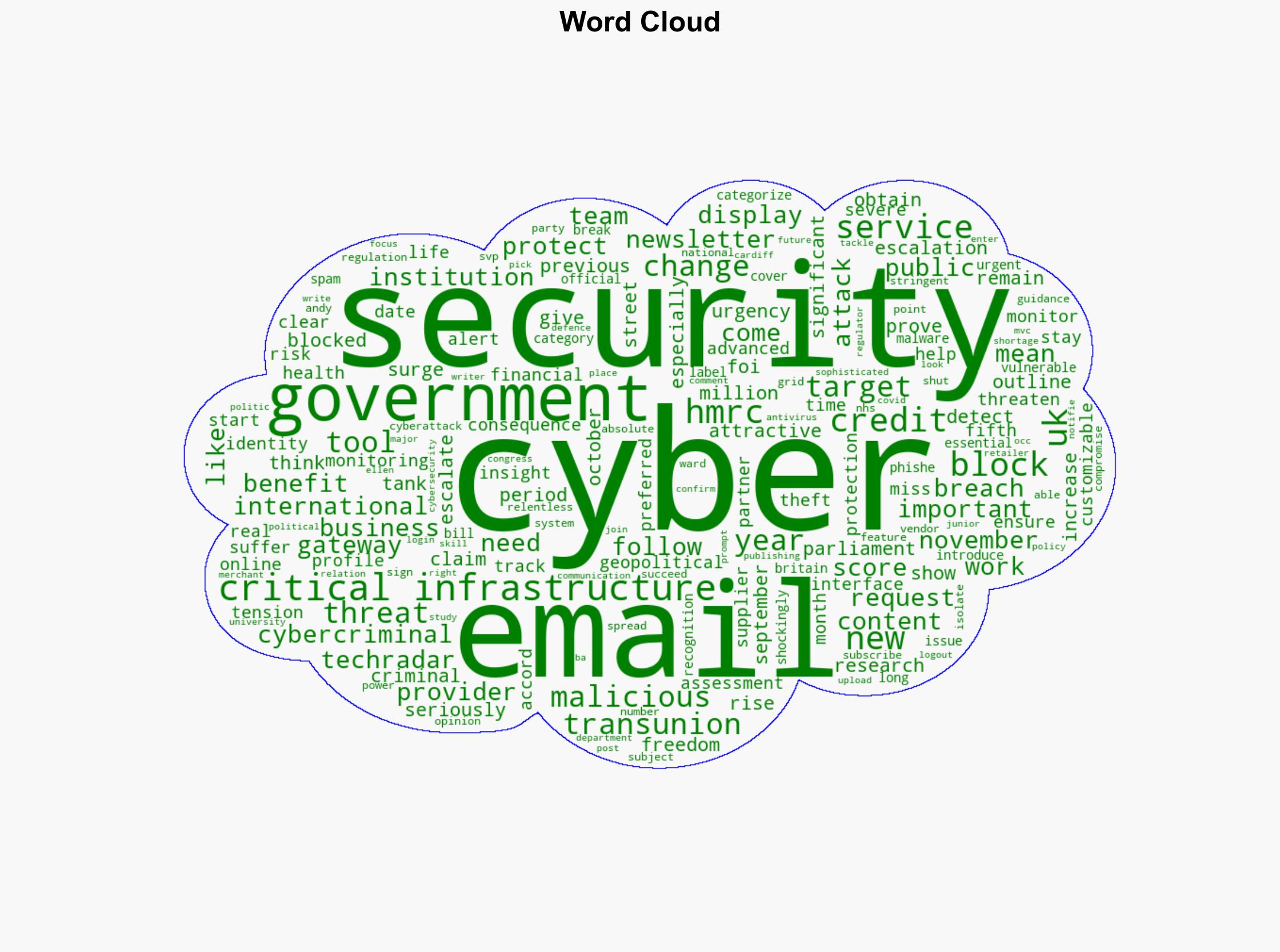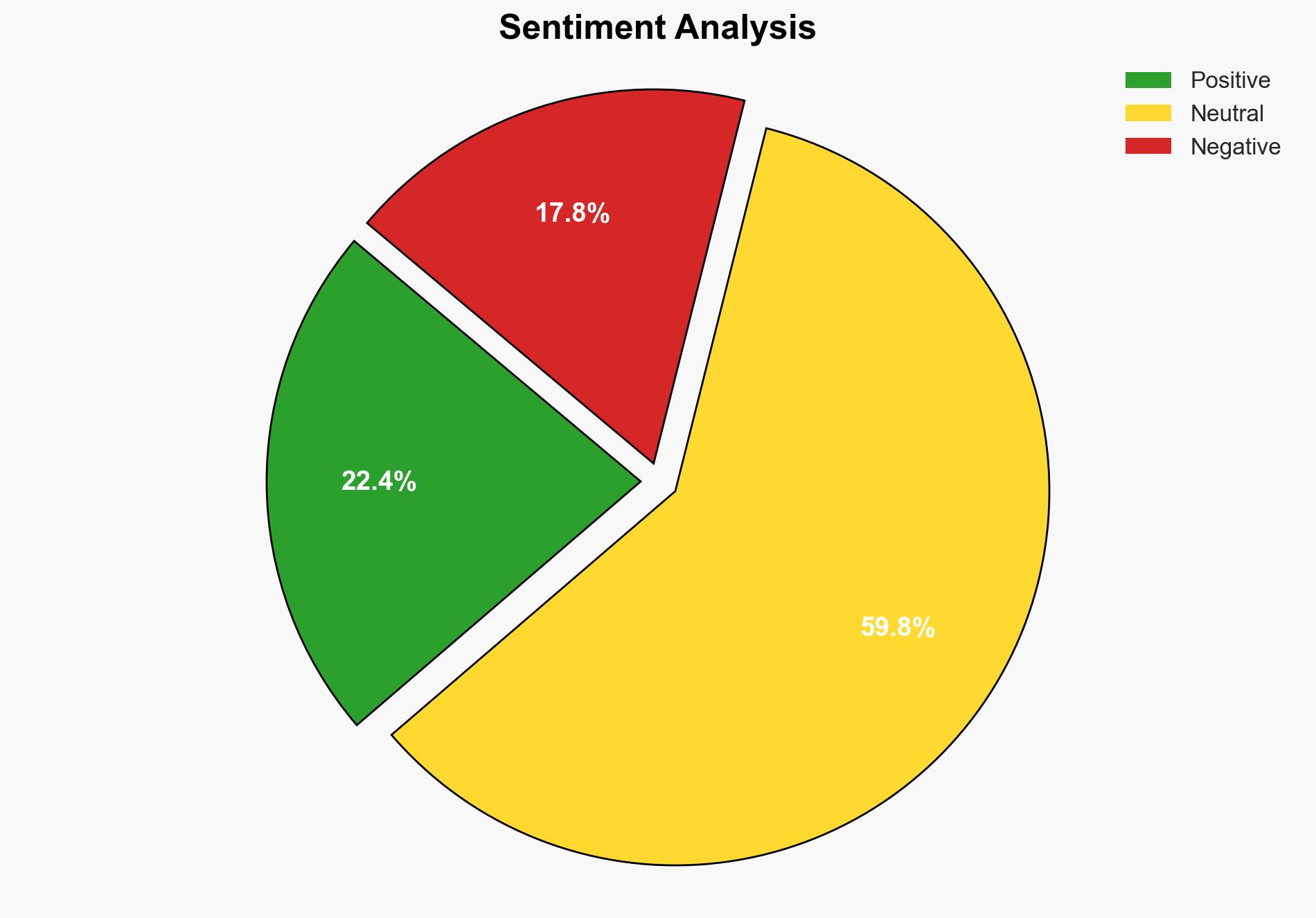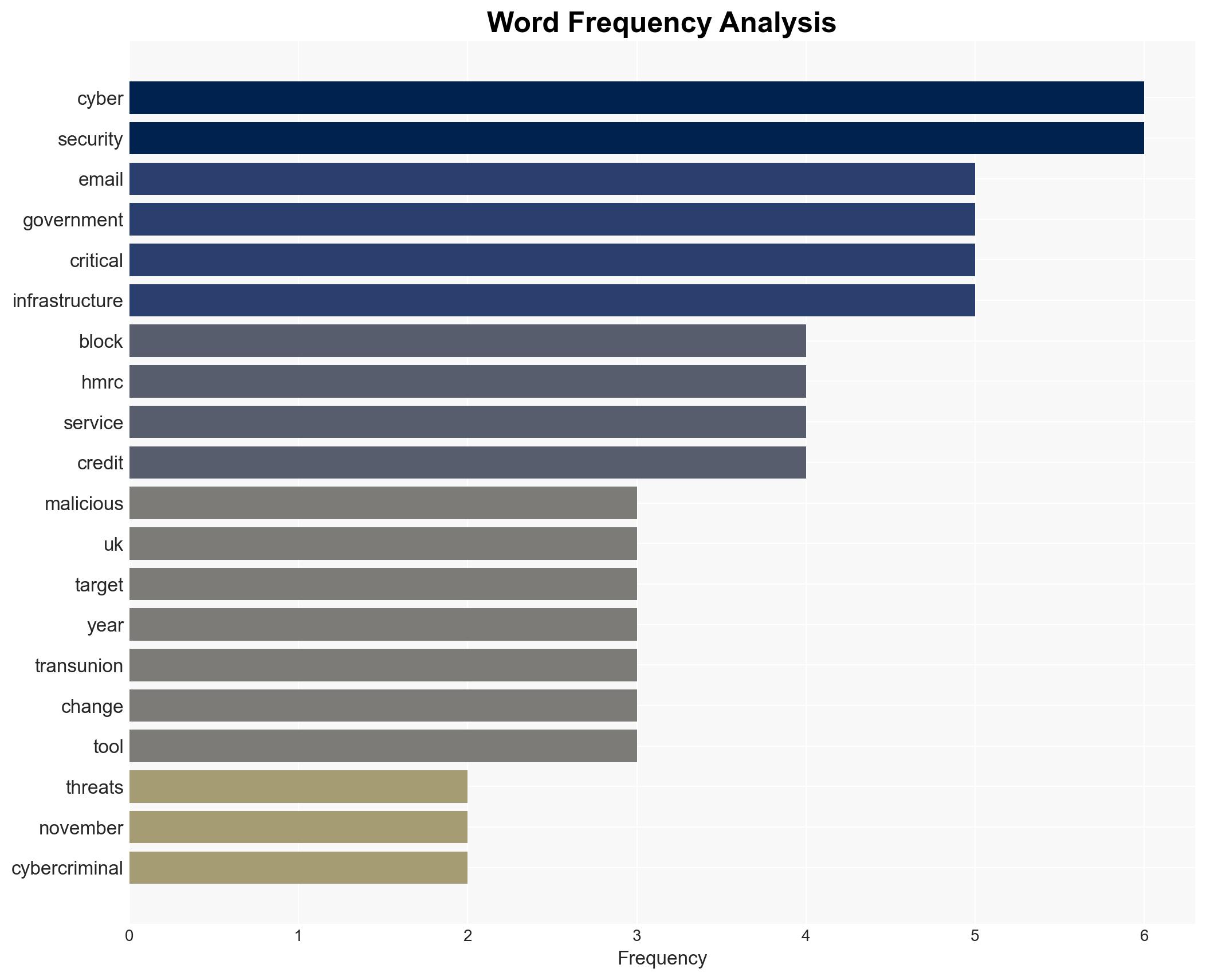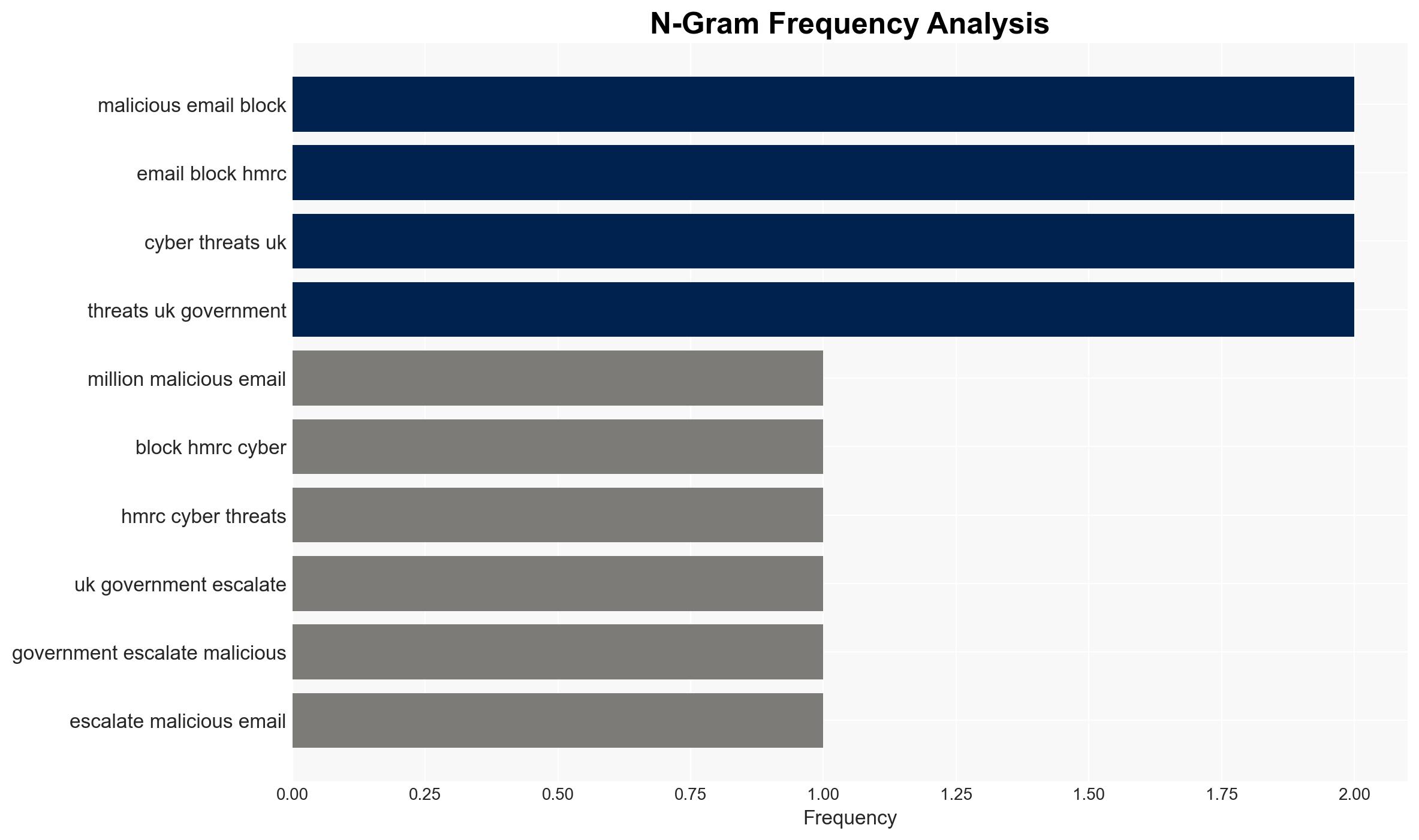Over 100 million malicious emails blocked by HMRC – TechRadar
Published on: 2025-04-10
Intelligence Report: Over 100 million malicious emails blocked by HMRC – TechRadar
1. BLUF (Bottom Line Up Front)
The HMRC has successfully blocked over 105 million malicious emails targeting UK government entities from November 2021 to September 2024. This surge in cyber threats highlights the increasing vulnerability of critical infrastructure, with a significant rise in blocked emails from November 2022 to October 2023. The introduction of a new Cyber Security Bill aims to bolster defenses for over 1,000 critical infrastructure providers. Immediate action is required to enhance cyber defenses and address vulnerabilities in third-party vendor systems.
2. Detailed Analysis
The following structured analytic techniques have been applied for this analysis:
General Analysis
The data indicates a marked increase in cyber threats against UK government institutions, with a 68% rise in blocked emails from the previous year. This trend underscores the persistent targeting of critical infrastructure by cybercriminals, driven by geopolitical tensions and the essential nature of these services. The change in HMRC’s email gateway supplier has impacted the categorization of threats, complicating threat analysis. The new Cyber Security Bill represents a proactive step towards mitigating these risks by enforcing stricter security measures across critical infrastructure providers.
3. Implications and Strategic Risks
The escalation of cyber threats poses significant risks to national security, with potential disruptions to essential services such as healthcare and energy. The reliance on third-party vendors lacking stringent security measures increases vulnerability. The inability to categorize threats due to the new email gateway system may hinder effective threat response. The economic impact of potential breaches could be substantial, affecting public trust and operational continuity.
4. Recommendations and Outlook
Recommendations:
- Enhance cybersecurity frameworks for critical infrastructure, focusing on third-party vendor compliance with security regulations.
- Invest in advanced threat detection and response technologies to improve real-time threat analysis and mitigation.
- Implement regular cybersecurity training for personnel across government institutions to increase awareness and resilience.
Outlook:
In the best-case scenario, the new Cyber Security Bill effectively reduces vulnerabilities, leading to a decrease in successful cyberattacks. In the worst-case scenario, continued reliance on non-compliant third-party vendors results in significant breaches, disrupting essential services. The most likely outcome involves gradual improvement in cybersecurity measures, with ongoing challenges in adapting to evolving threats.
5. Key Individuals and Entities
The report mentions Andy Ward and the Parliament Street think tank as significant contributors to the analysis of cyber threats against UK government entities. The HMRC and the introduction of the Cyber Security Bill are central to the ongoing efforts to enhance cybersecurity measures.





